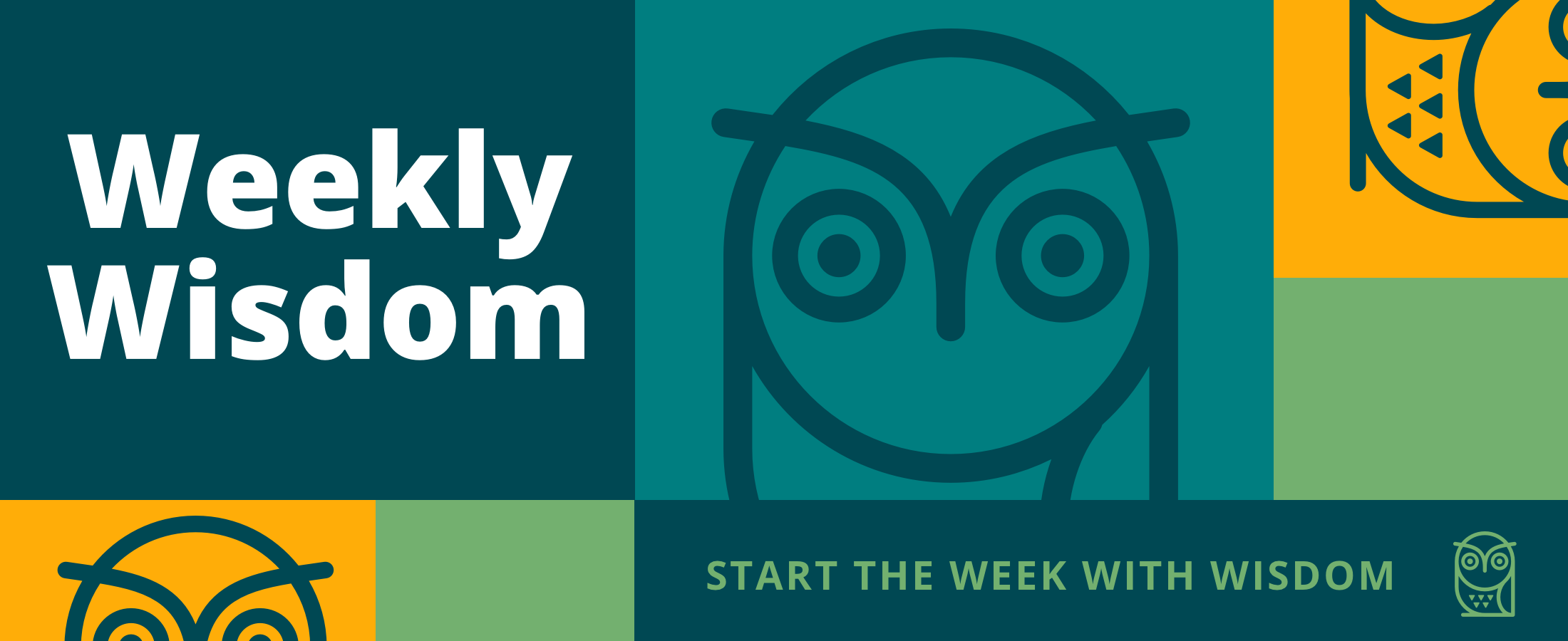You have to have a culture that embraces, supports, and is committed to these students and their success. The second key element is having the people who are committed to the culture. Once you have that platform, then you can start to think about programs. That’s the mindset we’ve brought to this.

Weekly Wisdom is an event series that streams live on Facebook, Twitter, and LinkedIn on Mondays. Each event also becomes a podcast episode. Every week, the UIA joins forces with Inside Higher Ed and talks with a sitting college president or chancellor about how they're specifically navigating the challenges of this moment. These conversations are filled with practicable things you can do right now by unpacking how and why college leaders are making decisions within higher education. These episodes will also leave you with a sense of optimism and inspiration.
We know now the world is much more complicated than we thought. Historic institutions that are non-adaptive are going to have difficulty adjusting to these kinds of high-speed changes. We need to instill the ability to adjust and keep performing our mission as a core part of what we do.
Michael Crow
This is the time when American higher education understands that our strength as a country will be inextricably tied to our success in bringing people from all backgrounds into the problem solving as we face the future.
Freeman Hrabowski, III
We’ve got a lot of important work to make sure that our institutions come through this pandemic and get stronger, at the same time that we address the issues that are right in front of us around systemic racism.
Mark Becker
If you start to address what’s important to people, I think people are going to take you seriously, regardless of if you’re in a room with them, or if you’re doing it virtually.
Frank Dooley
You’ve got to be willing to have courage to have these open and frank discussions, you’ve got to put yourself in a position to foster these kinds of discussions, and sometimes, more often than not, you will listen to your constituency and they will have the better solutions.
Harold L. Martin, Sr.
Bridget Burns, Executive Director of the University Innovation Alliance, and Doug Lederman, Editor and Co-Founder of Inside Higher Ed, speak with Kim Wilcox, Chancellor of the University of California, Riverside. When he spoke with us last year, he'd just reopened U.C.R. for fall quarter amidst severe budget cuts and a surging pandemic. This time, he shares his wisdom about the impact of alliances in higher education, the ideals and realities of collegiate athletics, and yet another surge in the COVID pandemic. Topics include:
- A review of the UIA's noteworthy outcomes
- The value of institutional alliances in higher education
- How the U.C. system has approached the pandemic's challenges
- Rethinking the status and practices of collegiate athletics
- Leadership advice received and given
- Four book recommendations
Bridget Burns, Executive Director of the University Innovation Alliance, and Doug Lederman, Editor and Co-Founder of Inside Higher Ed, speak with Tim Renick, Executive Director of the National Institute for Student Success at Georgia State University. This is a newly created institution in the emerging field of student success, and Dr. Renick shares his wisdom about what the term "student success" means from an administrative standpoint, using data to determine and implement best practices, and why he might be the most qualified person to lead the way. Topics include:
- Identifying and overcoming the institutionally created barriers that students face
- The pandemic as a test of support systems
- Patience with incremental results
- The moral imperative for student success
- The value of fostering future allies
Bridget Burns, Executive Director of the University Innovation Alliance, and Doug Lederman, Editor and Co-Founder of Inside Higher Ed, speak with Freeman A. Hrabowski, III, President of the University of Maryland, Baltimore County. As UMBC joins the ranks of UIA membership, Dr. Hrabowski shares his wisdom about the best practices of collaboration among universities, addressing disparities at all levels of the campus, and the power of humility. Topics include:
- The benefits of comparing how other higher ed institutions problem solve and innovate
- UMBC's Meyerhoff Scholarship program and Dr. Kizzmekia Corbett
- The value of serving at and understanding an institution before leading it
- A positive approach, a focus on substance, and the broad lessons of literature
- Keeping hope alive
